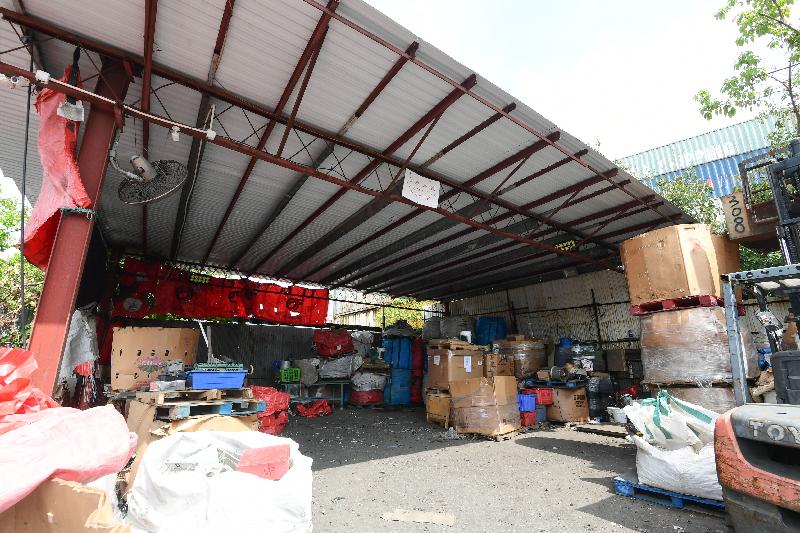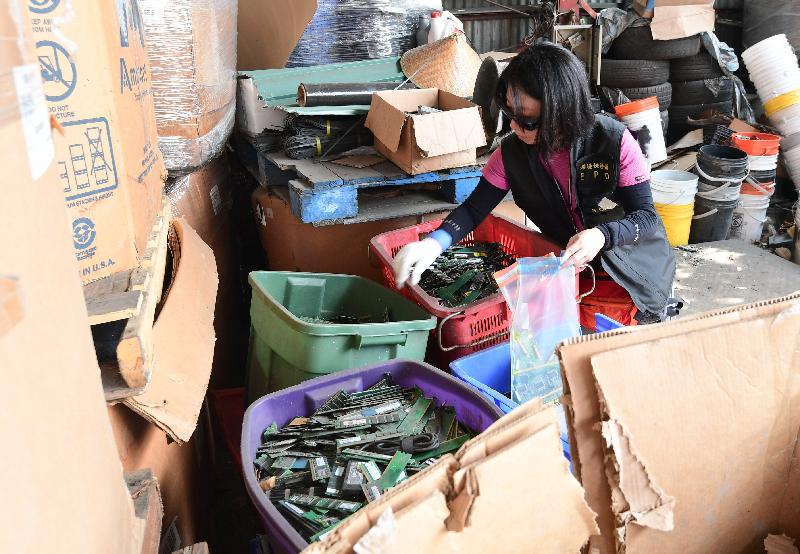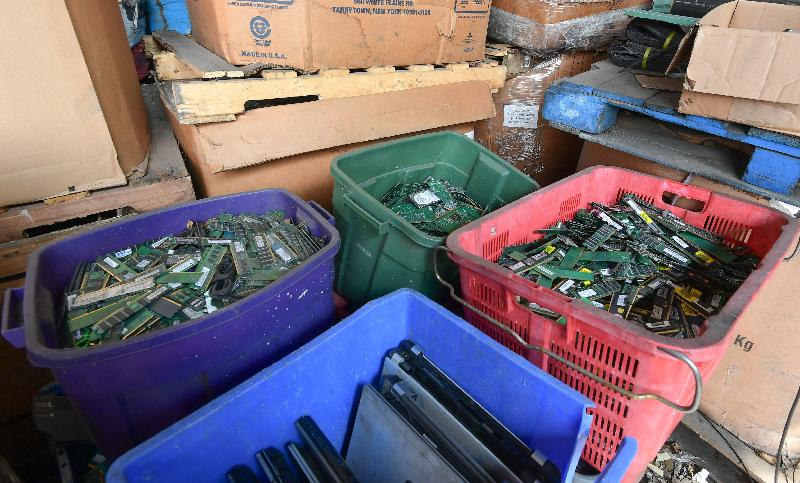Joint operation combats illegal handling of hazardous electronic waste by recycling sites in North District and Yuen Long (with photos)
The Environmental Protection Department (EPD) conducted an inter-departmental enforcement operation on October 12 and detected the illegal handling of hazardous electronic waste (e-waste) by a recycling site at Ping Shan in Yuen Long. The department is still investigating the persons involved and collecting evidence and prosecution will be instigated soon.
An EPD spokesman today (October 15) said that the department’s enforcement officers conducted a joint operation with the Fire Services Department (FSD) and Lands Department (LandsD) on October 12. The operation, entitled “Operation Jasmine”, aimed at conducting surprise inspections at open waste recycling yards in North District and Yuen Long in the New Territories to check whether their operations complied with the land lease conditions or legal requirements on pollution control, fire safety and land use.
During the operation, the EPD found that an open waste recycling site located at Ping Shan in Yuen Long was suspected to be involved in illegal collection, storage and handling of large quantities of hazardous e-waste, which is regulated as chemical waste. About 1 ton of hazardous e-waste, mainly waste printed circuit boards (PCBs), was found during the operation, with an estimated export market value of around $100,000. Separately, LandsD is also investigating whether there was any violation of land lease conditions at the above recycling site. The FSD also reminded responsible persons and staff of the recycling sites about fire safety requirements during the operation.
The spokesman stressed that dismantled or destroyed PCBs, LCD monitors and cathode ray tubes are hazardous e-waste, containing heavy metals and other toxic substances. They are classified as chemical waste and are regulated under the existing laws on chemical waste disposal. Chemical waste is hazardous by nature and, if not properly controlled, will pollute the environment and pose a risk to the health of relevant trade practitioners and the general public. Hence, the Government has been applying stringent control of the recycling and handling of hazardous e-waste in accordance with the existing law.
The EPD reminded recycling operators that they should strictly comply with the law on the control of chemical waste. They should register with the EPD in accordance with the law if they produce chemical waste. Chemical waste must be properly packaged, labelled and stored, as well as collected by licensed chemical waste collectors for delivery to licensed chemical waste disposal facilities for disposal. A permit has to be obtained in advance from the EPD for importing and exporting chemical waste. First-time offenders are liable to a maximum fine of $200,000 and six months’ imprisonment. For subsequent offences, offenders are liable to a maximum fine of $500,000 and two years’ imprisonment.
Members of the public may visit the EPD’s website for more information about the control of chemical waste: www.epd.gov.hk/epd/english/environmentinhk/waste/guide_ref/guide_cwc.html.




